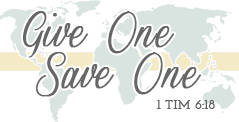The best advice I can give someone about post-adoption support is to try find it before you adopt! Everyone’s post adoption journey is different, but readying yourself with post-adoption support is sort of like preparing to go on a trip: you’ll be far less stressed if you go prepared, you’ll have way more fun if you go with friends, and in case of emergency you’ll want to know who to call!
Going Prepared
If you’ve been through the adoption process, you’ll know how much information you are made to consume during the home study process! I know my husband and I had stacks of photocopied articles, lists of book recommendations, and spent hours completing adoption education courses online. Since the education component is just one aspect of the hearty home study process, your brain will likely not absorb all the information presented to you. And even if you could absorb it all, you won’t know which portions of all that material will apply to your specific child until you come home. Will she not want to be touched? Will she want to be held all the time? Will she struggle to eat enough? Too much? Will he be despondent? Seek too much attention? Grieve hard? Not appear to grieve at all? You won’t know until you’re home!
Do your homework before you travel, but keep those references handy! They will serve as great reference tools as you attach with your child and help him or her adjust to his or her new life. My favorite resource for tracking our health and attachment process as a new family was “Attaching in Adoption” by Deborah D. Gray and I have heard excellent things from friends about “The Connected Child” by Karen Purvis.
Going with Friends
For me, just as important as reading books and articles about adoption was having friends who were on the journey with us or who had gone before us. Before we adopted they helped us prepare in emotional and practical ways and after we came home I loved to trade stories and ask them, “How did you handle this?” for any number of parenting issues. Parents of biological kids will handle some issues in ways that parents of adopted children- especially those adopted as toddlers or older children or after a trauma- cannot or should not. For example, parents of biological kids will take a different approach to bonding than parents of adopted kids; while they will be helping kids to separate and become independent as they grow, parents of adopted kids will have to navigate the path to their children’s independence while simultaneously working hard toward a strong parent-child attachment. Parenting adopted kids sometimes looks a different than parenting biological kids! Having close friends who “get it” and who can offer advice and support along the way is absolutely vital!
In Case of Emergency
“Emergency” may not exactly be the best word, but I use it to describe situation you hope won’t arise, but very well may. My husband and I absolutely hoped our son would bond to us after his adoption, but we also knew we had to be prepared to seek help if we saw signs of an attachment disorder. Our social worker and pre-adoptive studies helped us learn what we should look for and then we also touched base with an attachment therapist before we brought our son home; we wanted to know who we could call if we felt we needed help or even if we just wanted some reassurance. She was happy to hear from us and let us know that she was available to us if we needed her. Likewise, you may want to do some initial research into what services are in your area for things like early intervention or physical therapy if your child is coming from a place where they may not have had the best start in life. It was a comfort to us to know that if we found ourselves in need of extra support, we did not have to do any research or figure out what to do; we knew exactly who to call and where to go for help!
*
These are three steps you can take to prepare yourself for life after adoption. I can say from experience that you will not regret equipping yourself with a great support network before you bring your new son or daughter home! Go into your adoption educated, make friends and be a friend to other adoptive parents, and know who to call in case of “emergency.” Post adoption parenting will be filled with joys and challenges but by preparing yourself for them both, you are setting yourself up for success. Blessings on the journey!







No comments:
Post a Comment